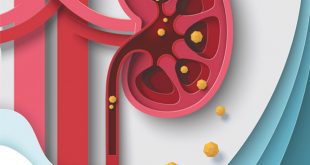 When it comes to choosing a healthy diet, the amount of contradictory information and programs can be overwhelming. Is vegan, paleo, pescatarian, or keto the answer for optimal health? The answer is not so cut and dry.
When it comes to choosing a healthy diet, the amount of contradictory information and programs can be overwhelming. Is vegan, paleo, pescatarian, or keto the answer for optimal health? The answer is not so cut and dry.
The confusion lies in the fact that all people have different needs and different reactions to foods and nutrients, but the bottom line is, healthy, whole, plant-based diets are the key to health and organ function. This, however, does not mean that you should or should never consume animal products. It simply indicates that incorporating the right types, quantity, and quality of vegetables and fruits are essential to helping people stay healthy and to reverse damage and degeneration.
There are various types of plant-based diets to choose from, but some may cause more harm than good. For example, going plant-based while eating processed foods and unhealthy options like refined grains, white rice, cakes, and crackers can raise the risk of disorders due to the chemicals, trans fats, sugars, and refined carbohydrates, which all contribute to an inflammatory state.
A Case for More Plants
A study published July 17 in The Journal of The American College of Cardiology, titled, “Healthful and Unhealthful Plant-Based Diets and the Risk of Coronary Heart Disease in U.S. Adults”, looked at the effects of three different plant-based diets throughout several years. In the study, Ambika Satija, ScD et al. and her team of researchers, designed three varieties of “plant-based” diets. The first diet was an overall plant-based plan that included limited amounts of animal products like dairy, eggs, and meat. The second diet was plant-based with whole grains and legumes and excluded or severely limited any animal products. And the third diet was an unhealthy plant-based diet that included sugar, refined carbohydrates and unhealthy foods like French fries and processed bread.
All of the participants were free of chronic diseases at the baseline, and the group of participants in the second diet (healthy plant-based) had the best physical outcomes, while the third dietary group had the worst. In fact, of the third group, 8,631 participants developed coronary heart disease after the conclusion of the trial.
Diets like the Mediterranean diet, the MIND or Dash diet are all viable options for individuals that want to have healthy cardiovascular systems but still consume some animal products. Eating plant-based foods while consuming lean proteins like finfish, shellfish or poultry can nonetheless be healthy. With a heart-healthy diet, the best advice is to load up on fresh organic produce, limit refined or processed foods, reduce alcohol and sugar, eliminate processed meats and excessive saturated fats. If being vegan or vegetarian is better suited for one’s personal preference or needs, that is absolutely a remarkable way to stay healthy and protect the heart. But the one thing we know from various studies and research is that processed carbohydrates, sugars, and trans fats cause inflammation and can exacerbate disorders.
Speaking to a medical professional is essential to learn which foods to eliminate from the diet entirely as to not intensify any disease states.
Elysium Med Spa
Elysium offers each of our guests the chance to relax in a tranquil environment. As a courtesy to others, we appreciate you turning off mobile devices and speaking softly. Children under the age of ten are not allowed unless they are receiving a service. Children under the age of 10 are absolutely not permitted to enter the Laser room under any circumstances and must be accompanied by an adult in the waiting room.
Elysium Med Spa’s Medical Director
Dr. Mahnaz Qayyum, MD is a primary care medicine specialist and has been practicing for 18 years. She graduated from George Washington School of Medicine in 2001 and specializes in family medicine as well as advanced aesthetics.
Please call our office at 407-355-7759, 863-204-8300 to schedule your appointment. To find out more about Elysium Med Spa or their Medical Practice, please visit elysiummedspa.com.
 Central Florida Health and Wellness Magazine Health and Wellness Articles of the Villages
Central Florida Health and Wellness Magazine Health and Wellness Articles of the Villages



